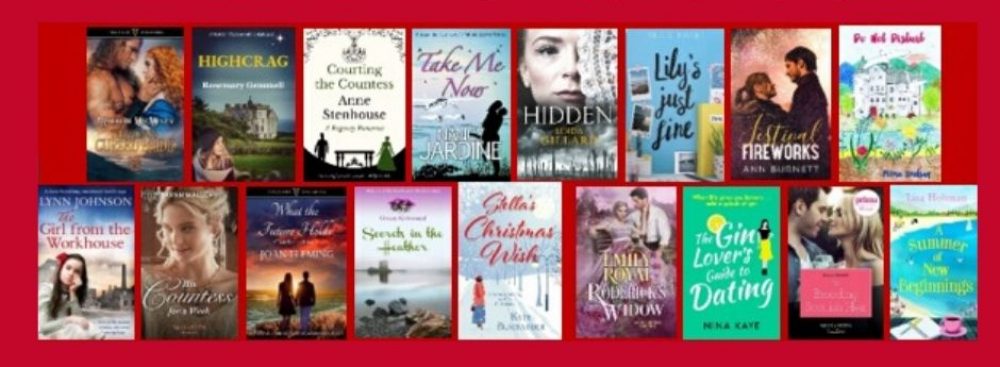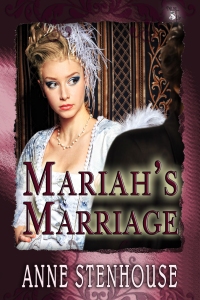Men are from Mars This month’s round robin topic asks if certain genres stereotype men and women? Why do I think that happens? Do I do anything to avoid it in my writing?
Certain genres do stereotype men and women. There are classic preconceptions and romance literature is certainly the place you’re going to find masculine men and feminine women. But, you’re not going to find men who are masculine in the way that military commanders in a buddy movie are masculine, because romance literature is aimed at a female readership. Yes, I know…
So why does it, sexual stereotyping, happen in romance literature? Because it’s in the nature of the beast. Most men want to protect ‘their’ woman and most women want to be cocooned by ‘their’ man – at least through the honeymoon period.
Do I do anything to avoid it in my writing? I think so, but within the boundaries of what my readers expect.
So if you’re aiming at a female readership, then the masculinity is fine-tuned. I write regency-style historical romance and I love the battle-of-the-sexes banter that is a characteristic of that genre.
I like to have my H & H verbally sparring when together on the page. At the same time, the regency period was renowned for its vulgarity. You only have to study a few of the political cartoons of the period to pick that up. So the men, when in male company were probably a lot less refined than they are portrayed in the drawing-rooms of the novels.
It’s also the case, that I enjoy allowing my female characters to kick over the traces a bit. I like to use the challenge of getting into their contemporary mores, but I also like to have them straining ahead to a time we might recognise as coming. Bella, in Bella’s Betrothal, is very interested in the layout and content of gardens. many women in the later nineteenth and early twentieth century became recognised and successful gardeners.
Bella, in Bella’s Betrothal, is very interested in the layout and content of gardens. many women in the later nineteenth and early twentieth century became recognised and successful gardeners.
Daisy, in Daisy’s Dilemma, is hopelessly confused. Growing up as the pampered and highly privileged daughter of an earl, she struggles to understand why her new sister-in-law, with her interest in educating the masses, makes her so uncomfortable. Could there be something out there she doesn’t yet understand?
Equally, their heroes must be made to rise to the challenge of an equal mate. How do Tobias, Charles and Reuben temper their arrogance, their assertiveness and their testosterone? The books are all available for your trusty e-readers. I really hope you’ll enjoy finding out. Other writers are blogging about this topic today, too. I’m followed by the lovely Skye Skye Taylor http://skye-writer.com/blogging_at_the_beach but you can also visit the others from their links, below. thanks for dropping in, Anne
Beverley Bateman http://beverleybateman.blogspot.ca/
Connie Vines http://connievines.blogspot.com/
Rachael Kosinski http://rachaelkosinski.weebly.com/
Anne Stenhouse https://annestenhousenovelist.wordpress.com/
Skye Taylor http://skye-writer.com/blogging_at_the_beach
Fiona McGier http://www.fionamcgier.com/
Helena Fairfax http://helenafairfax.com/
Rhobin Courtright http://www.rhobinleecourtright.com/





Great post, Anne. I loved the photos you used to illustrate it. It’s interesting that Regency romances are so popular, as they’re all about a time when women had very little power. I like the way you give your heroines some steel, despite everything, and how they “look forward to the time that’s coming.” Another fascinating topic!
LikeLike
I thought the photos made the point. Glad you saw it, too. Yes, the Regency was a time of virtually no power for any woman who wasn’t a rich widow. the hidden lining is the chance to engage in the verbal duels and prick the men’s pomposity. anne
LikeLike
It’s important to be aware of stereotyping of any sort when trying to write something original and interesting. It’s not always necessary to avoid it – for example if the writer is trying to make a humorous or political point based on the human tendency to stereotype. However, in romance writing the author is walking a fine line and in historical fiction especially so – set as it is when customs and behaviour were different from now. For me, the most interesting characters in any kind of fiction are those who subvert stereotypical expectations. They may appear on the surface to be the stereotypical strict patriarch, cynical detective, post-menopausal granny but then they do something surprising (but credible) and hook the reader by continuing to surprise.
You, Anne, hit exactly the right balance for your genre. Mariah and Bella (I haven’t met Daisy yet) both push the boundaries – not in any 21st century way – but in wholly credible and interesting ways for their time – as in reality many real-life women did in the past.
Interesting post – really got me thinking.
LikeLike
Hi Anne, Yes, stereotypes are just that because they recognise the behaviours. Thank you so much for your really kind words. lovely to know you feel the ladies hit their spot. Anne
LikeLiked by 1 person
I agree you have to stay within the historical norms of society when writing historical fiction, and I like the way you reach toward the contemporary reader in the way you create your characters.
LikeLike
Hullo Rhobin, thanks for dropping by, Anne
LikeLike
We must have been on the same wavelength posting this blog. Women read romance to meet the men they wish they knew in real life so presenting them with the cigar chewing, cussing, chauvinist is not going to work. But one thing I do to try to avoid cookie cutter heroes is to read books by male authors and pay attention to how they think and talk and act and then incorporate that into my own heroes. And of course, I like feisty females with attitude.
LikeLike
That’s a really god idea, Skye, about reading male authors. Will pay a bit more attention. Anne
LikeLike
Thanks Anne, for the historical perspective and quick peek into their life styles. I didn’t realize about the vulgarity. Beverley
LikeLike
Hi Bev. thanks for dropping by. Yes, some cartoons are amazingly unpleasant. Anne
LikeLike
Some authors use time travel to get contemporary females into the situation where they clash with the morals and expectations of the past. I don’t read much historical romance, but if I did, I’d want to read about the scullery maid and her lovers, since most servants never bothered to marry. They had nothing to pass down to children, so there was no point to it. Were their relationships more egalitarian? One wonders…
LikeLike
Hi Fiona, I’m fairly clear relationships were no more egalitarian below stairs and even from my own 1950s childhood in an industrial village remember how women ‘knew their place’. Even then I bitterly resented that any man coming into the corner shop went straight to the head of the queue! On the other hand, maybe his presence disrupted the gossip. Anne
LikeLike
When women talk about other people, it’s called gossip, an insult. When men talk about other people, it’s called “talking business”, which obviously is a positive thing. I spent a few years as a sales exec in a department of 14 men and me. They were bigger gossipers than the secretaries, but denied it when I pointed it out.
LikeLike
Hi Fiona, I know what you mean. As writers we do benefit a lot from others’ gossip. I expect a great deal of what you overheard from those men is really useful in creating believable male characters. Anne
LikeLike